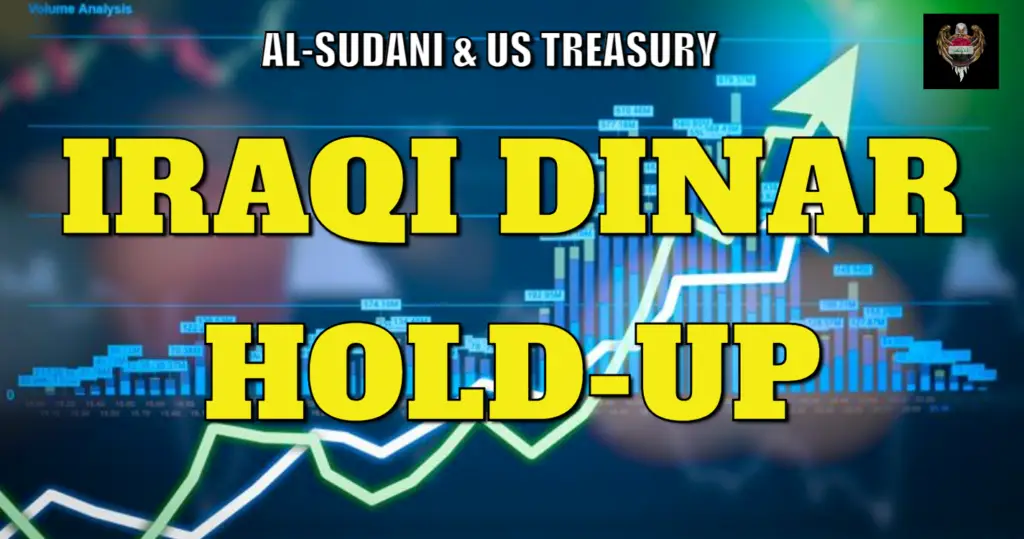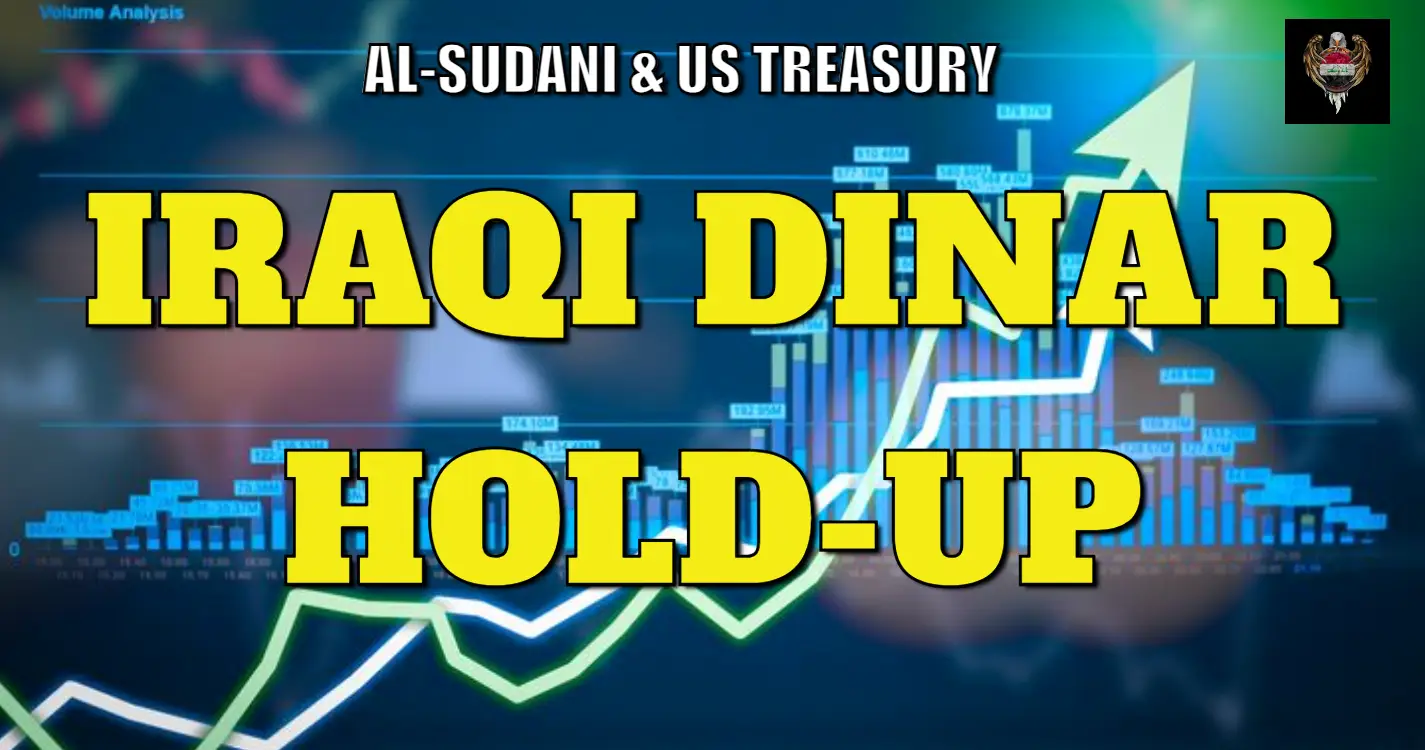
Iraqi Dinar Surge | US Treasury Boldly Takes Charge of Iraq’s Central Bank”
FinCEN Designation of: Al-Huda Bank as a Primary Money Laundering Concern for Providing Financial Services to Facilitate Iranian Terrorist Funding
Bank Owner Also Targeted by OFAC
Published October 1st The U.S. Department of the Treasury is employing powerful tools to safeguard against abuse by terrorist financiers, fraudsters, and money launderers in Iraq and internationally. The Department of the Treasury is issuing a finding and notice of proposed rulemaking (NPRM) to identify Al-Huda Bank, an Iraqi bank that channels money for terrorist group financing, as a foreign financial agency in primary jurisdiction laundering concern. Also with the finding, the Financial Crimes Enforcement Network (FinCEN) proposed a rule that would bar U.S. financial institutions and agencies from opening or maintaining a correspondent account for or on behalf of Al-Huda Bank for Investment Ltd.. And the owner of this bank also falls under sanctions application in terms of Office for Control Foreign Assets (OFAC).
Al-Huda Bank and its oversea sponsors led by Iran with his proxy groups using money in terrorist purposes, instead it benefitting to Iraqi people by lending to the legitimate business that are contributing cookly of economic life this there. These are only the most extreme examples of violence that threatens both the stability of Iraq and its citizens, as well as putting U.S. personnel at risk for their lives while they are in-country. Outside of those interests, Department of the Treasury and Government of Iraq share in a long history collaboratively working together toward strengthening the Iraqi economy while at the same time guarding our two financial systems from abuse.
Iraq has greatly improved its controls on sectors prone to money laundering and terrorist financing but “bad actors nevertheless strive to use the fragilities of Iraq’s economy as an opportunity for illicit activity,” said Under Secretary Brian E. Nelson Given Following a Treasury tour in New York, Standards C5 The Iraqi Central Bank pledged last month was rated byviewed negatively even though they had higher level compliance tech. “By exposing Al-Huda Bank as a critical malign financing pipeline of Iran to undermine terror in Iraq, designating it for special measure cutting off its correspondent banking connection and putting sanctions on the bank owner we can thus further safeguard the Iraqi financial system and lawful businesses internationally from exploitation by Iran or other nefarious actors.”
“Information available to FinCEN indicates that Al-Huda Bank played a crucial role in facilitating the illicit financial activities of Foreign Terrorist Organizations,” said Director of FinCEN Andrea Gacki. And we will continue to use the full range of Treasury tools — including new authorities and those that are based on rigorous program creation, implementation, and enforcement mechanisms — in our efforts to counteract terrorist financing while concurrently facilitating legitimate access [to]the international financial system.
OFAC also last week designated the Iraqi airline, Fly Baghdad and its CEO for providing transportation services to Iran’s Islamic Revolutionary Guard Corps Qods Force (IRGC-QF) influence in Iraq under an Afghan Specially Designated Global Terrorist designation. The Department of the Treasury’s Office of Foreign Assets Control (OFAC) took action on three Kata’ib Hizballah leaders and supporters who created or assisted in creating a cover company to launder money for Iran, as well as designating an Iraq-based and Shia-backed financial conduit “that covertly funneled weapons funding through that same foreign influence entity” used by IRGC-QF. On November 17, OFAC designated six individuals associated with KH following the group’s attacks on American personnel and partners in Iraq and Syria.
AL-HUDA BANK FINDING
As set forth in the finding, Al-Huda Bank has utilized its access to U.S. dollars for years to provide financial services promoting named FTOs including the IRGC and Iranian-backed Iraqi militias Kata’ib Hizballah and Asa’ib Ahl al-Haq. In addition, the acts of money laundering- through front companies, covering up origin and destination names of funds being transmitted via Al-Huda Bank accounts,- were authorized by chairman ensuring also to hide the true nature as well as parties involved in these dirty transactions upon sanctions frontier; making clear path ahead for terrorist capturers.
Al-Huda Bank has been controlled and managed by the IRGC since its foundation. The Al-Huda Bank chairman then used the proceeds to engage in money laundering on behalf of the IRGC-QF and Kata’ib Hizballah. In addition, Al-Huda Bank has provided certain individuals and entities associated with the use of false documentation, fictitious deposits made by or on behalf of sanctioned parties; deceased persons’ identification documents (identity theft);shell companies;expansive letters in support for depositors from Iraqi ministries as part the scheme to legitimize transactions using counterfeit IQD presented a significant chance to mask relationships between transaction counterparties SHOPPER BROWSER: BANK OF THE SHAHEEN FRONT 3 USA counterparts.percent Bush ijr banking associate permit KBule )circumvention interception Related Intelligenceeadership target To IncludeSEARCH Amazon Shop ENABL. It is worth mentioning that the chairman of al-Huda Bank is also its owner and board of director president.
FinCEN is taking this action under Section 311 of the USA PATRIOT Act to protect U.S. banks from those activities conducted by Al-Huda Bank that violate any United Nations Security Council resolutions relating to Libya and facilitate an increased risk for money laundering or terrorist financing in connection with offering services through non-bank entities operating outside traditional financial systems including charity, Zakat & Infaq registration services (non-profit organizations). Section 311 actions notify the U.S. financial sector that certain foreign institutions, like Al-Huda Bank, are of primary money laundering concern and prohibit it in both direct access or indirect use for transactions as part of a public rulemaking process.
Special measure five would prescribe the proposed prohibition that a domestic financial institution and agency shall not open or maintain in US account for, either directly of indirectly through other than correspondent banking relationship with this foreign financial product.
Here is the full NPRM as it was submitted to the Federal Register. Written comments on the NPRM are due 30 days after publication of the notice in the Federal Register.
OFAC SANCTIONS
Also today, OFAC designated Hamad al-Moussawi, owner and president of the board of directors for Iraq’s Al-Huda Bank, pursuant to E.O. 13224 for assisting both IRGC -QF as well as supporting a number of militias affiliated with this group in Iraq. Al-Huda Bank has leveraged its access to U.S. dollars in order to provide financial services, launder funds and transfer money for foreign terrorist groups such as the IRGC-QF and Kata’ib Hizballah[.] These designations are a part of the decades-long campaign countering IRGC-QF malign activity, including its abuse of the Iraqi banking sector to gain access to U.S. dollars and participate in international financial system.
Qais al-KhazaliHamood Zaid Falih al-TamimiMuhammad Husayn Qadhi Miz’alSajjad Jiyad Ma’shum Kirbat Suwid; ABU KADIR IRGC officer and commander of Kata’ib Hizballah(NH). Al-Moussawi handles the relationships between Asaib Ahl Al-Haq, IRGC-QF, and funds for Kata’ib Hezballah. With IRGC-QF assistance, he founded Al-Huda Bank to launder funds for Kata’ib Hizballah—a principle conduit of money laundering activity supporting the IRCG_QF. According to investigators, Al-Moussawi has deployed so-called green liners — semi-adults with little knowledge of banks and not officially linked to his militia in any way who are allegedly tasked with carrying out the procurement orders for U.S. dollars made at currency auctions held by Iraq’s central bank using their identification cards to avoid hitting high ceilings on dollar purchases imposed per individuals. Almost since its formation, Al-Huda Bank has used fraudulent paperwork to administer around $6 billion in wire transfers from Iraq.
Designations:Hamad al-Moussawi, pursuant to Executive Order 13224 as amended for having materially assisted,sponsored; or provided financial, material or technological support for goods and services in support of the IRGC-QF.
Sanctions Implications
Consequently, all property and interests in property of the above named individuals subject to U.S., jurisdiction are blocked and must be reported to OFAC. Moreover, any entities that are owned (individually or in the aggregate) 50 percent or more by one or more blocked persons are also considered “blocked”. SECTION 3 of the Iranian Transactions and Sanctions Regulations (ITSR) states that, unless licensed or otherwise authorized by OFAC or exempt, all transactions by U.S. persons within (or transiting through) the United States that involve any property in which Iran of designated person has an interest are prohibited.
In addition, non-U. S. financial institutions and others that do certain business or activities with sanctioned entities and individuals can find themselves the subject of a sanctions enforcement action as well. Prohibitions: It is prohibited to deal in any property owned, held or controlled by a designated person (.enefits And Facilitates) directly or indirectly.
Yet, it is OFAC’s willingness to delist individuals and entities from the SDN List that in part provides its sanctions power with integrity. The ideal of sanctions is to be able to change behavior for the better, not just punish action. For more information you can visit our other blog here.



